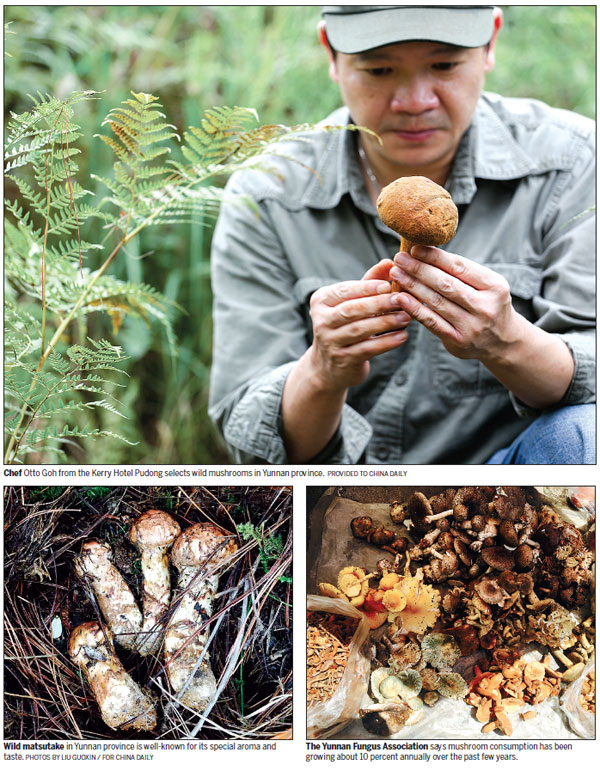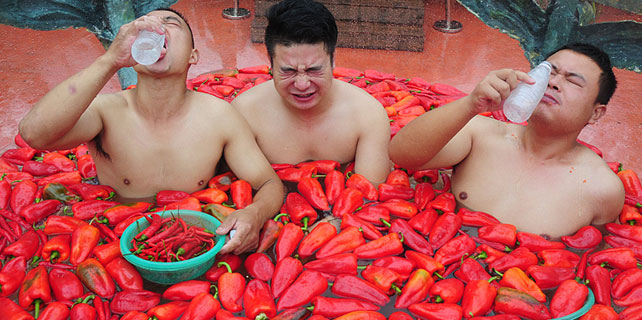The mushrooming demand for mushrooms

Diners in China have been flocking to restaurants to savor the earthy flavors of premium Yunnan fungus, especially the prized matsutake, and even the prohibitive prices this year have done little to deter gourmands
This summer's unusual rain pattern in Southwest China's Yunnan province has been bad news for mushroom gatherers.
The region, which is home to more than 250 types of mushrooms, saw its average rainfall between May and early June dip by 50 percent. What followed was 40 consecutive days of rain that resulted in floods and mudslides that have severely affected mushroom production.
Matsutake yield has dropped by a staggering 90 percent this year. Farmers said they only managed to gather about 10 metric tons of the mushroom daily over the past week, which is usually the peak harvest period.
But mushroom traders have actually benefited from the dismal harvest. Because of the low yield and high demand, the retail price of matsutake in Yunnan peaked at 3,000 yuan ($448) per kilogram this season.
According to the Yunnan Matsutake Association, domestic consumption of this particular mushroom was 1,000 tons last year. Demand for the mushroom is also high in Japan, especially during this time of the year when it is widely consumed during the Obon Festival, also commonly referred to as the Ghost Festival.
"We would usually wrap up our business this time of the year as exports to Japan, our main customer, nears its end," said Yan Ji, a 32-year-old mushroom trader from Kunming, the capital city of Yunnan. "This year, however, business has not even started to wane."
Growing popularity among diners
Yan, who works for his family business which sells premium mushrooms and vegetables to Japan and South Korea, noted that exports used to account for 90 percent of the company's earnings.
His company, Xintian Fungus, has been in the business for more than two decades and is among the top exporters in Yunnan province. The company sells a wide variety of gu, cultivated mushrooms that are available all year around, and jun, wild edible fungus that grow in forests and are harvested only between July to early September every year. The price of the latter is typically five to 10 times higher than the former.
He explained that while Chinese consumers are no strangers to savoring mushrooms, it was not until about three years ago that demand picked up in major cities such as Shanghai, Beijing and Guangzhou of Guangdong province.
Today, most of his customers that buy matsutake from his online retail store on Taobao.com, the country's largest online retail platform, come from China's Yangtze River Delta region, especially Shanghai.
"If matsutake is available all year round and Shanghainese consumers continue buying them from me at this price, I could soon be a billionaire and buy myself an apartment in Shanghai," he laughed.
















